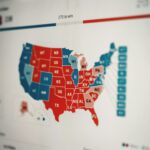Weekly Writers Round-Up: Perspective on Recessions, the Ideology of Public Schools, and the Dangers of an Extended Trade War
Each week, we’ll be featuring opinion pieces from the alumni and current participants of AF’s Writing Fellows Program. A few highlights from the past week are below. Do you dream of having bylines like these? We can help make those a reality. Apply now for our fall session of the Writing Fellows Program! Applications are open now through August 23!
An Old-Fashioned Recipe for Economic Growth by Chelsea Follett (Summer 2017) in The American Spectator
With the recent inversion of the yield curve sparking recession fears in the United States and the stock market swinging wildly in response to the ongoing trade negotiations with China, some are wondering if the longest economic expansion in American history may soon come to an end. Those uncertainties bring renewed urgency to the age-old question at the heart of economics: what creates wealth?
Throughout most of human history, there was almost no wealth. People were very poor, and there weren’t that many of us. While our species is roughly 300,000 years old, for the first 290,000 years or so we were foragers barely scraping by. Even after Homo sapiens embraced agriculture, progress was still painfully slow. But then, suddenly, population skyrocketed, followed shortly by an explosion in income and standards of living…
Public Schools Are Not Value-Neutral by Christian Barnard (Spring 2019) in The Bulwark
“Should the public be funding religious education?”
That’s the question the Supreme Court may soon clarify when it hears Espinoza v. Montana Dept. of Revenue—a case that currently allows states to deny state-supported scholarships to students attending religious private schools.
All such cases are essentially challenges to the Establishment Clause. But what Establishment Clause jurisprudence has yet to grapple with is the fact that public education is not and never has been ideologically neutral…
A Long-Term Trade War Is a Lose-Lose Scenario by John Dale Grover (Fall 2018) in The National Interest
The economic pain of the trade war with China has caused President Donald Trump to put a partial pause on a planned increase in tariffs. On August 13, the U.S. administration announced that the new 10 percent tariffs on certain consumer goods would be delayed until December 15 to spare American consumers during the holiday season. As a result, Americans won’t have to worry as much about if they can afford toys, laptops, phones or shoes for Christmas—for now.
While this pause is good news, it is still a long way from restoring the economic truce Trump and Chinese President Xi Jinping reached during the G20 summit in June. Although the negotiators for both countries met again recently, Trump wanted to impose 10 percent tariffs on $300 billion worth of Chinese imports by September 1. Tuesday’s announcement offers some reprieve and may also dampen China’s retaliation…




